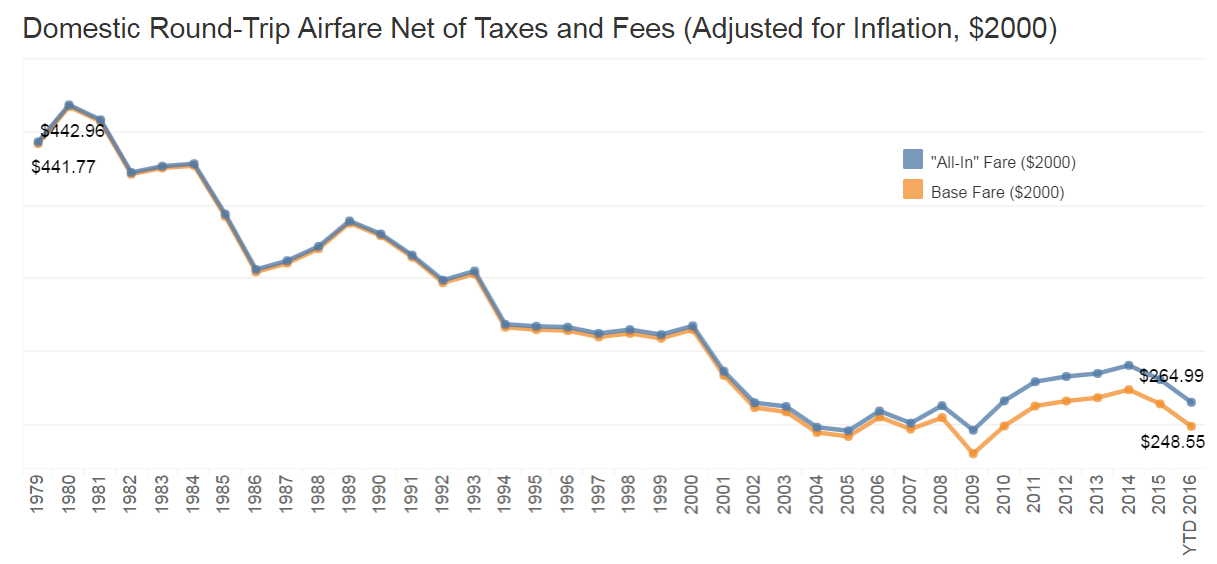Former White House Chief of Staff and former Chicago mayor Rahm Emanuel is known for saying 'never let a crisis go to waste.' It's an opportunity to push an agenda. So as the airline bailout train leaves the station some people are advocating the consumer protection rules that they wanted anyway. Others (like Alexandria Ocasio-Cortez) want the financial reforms they want anyway.
The American Prospect wants to nationalize the airlines recycling the same poorly thought-through arguments that Robert Kuttner, the Prospect's co-founder and co-editor trotted out in the wake of the United Airlines David Dao episode in 2017.
The author throws a litany of complaints about airlines at the wall: checked baggage fees, basic economy tickets, stock buybacks, and mergers.
Oddly they complain that buybacks "goos[ed] the stock price to the detriment of investments in equipment, worker pay, and passenger comfort" while failing to realize that airlines never achieved higher valuation levels that they hoped for (so much for goosing share price), that airline employee pay has been rising over the last decade, and even complaining about airline debt - which has been used in large measure for "investments in equipment."
The Prospect piece lays all complaints about airlines at the feet of 'deregulation' which it fails to understand, when in fact airlines have their own regulator in the Department of Transportation that other businesses do not answer to. Airlines are far more regulated than most industries. It helps to begin what deregulation actually did,
The regulated era entailed the Civil Aeronautics Board keeping prices high, blocking 'ruinous competition' and ensuring airline profits. Far from a competitive marketplaces, federal regulation entailed enforcing an oligopoly.
Since deregulation real prices have fallen even including fees. Airlines have gotten safer. And the idea that airlines had a golden past is somewhat silly. Consumer advocate Ralph Nader took his airline overbooking complaint to the Supreme Court complaining that federal regulators blocked compensation.

Sure, meals were better back then - prices were high and airlines couldn't discount to compete for customers, so they competed on amenities. A return to the regulated era means fewer people flying and higher prices, but unsaid in the piece but implied in complaining that airlines are polluters (and explicitly argued by Kuttner in the past) is that fewer people should be able to fly, because there ought to be less flying.
Oddly while arguing against bailouts for the industry they want to put even more money on the line by taking over the entire thing and assuming full responsibility: "the operations and the debt obligations of the major carriers" which includes more debt that the airlines are seeking in funding as well as ongoing costs and risk of losses.
And what's to suggest that a nationalized airline, actually run by the government ("airlines will be again treated as public utilities"), means better service - when an airline isn't answerable to customers, just to politicians?
To be sure, airlines can be made better. We should make competition legal and stop blocking new airlines from gaining access to valuable airport gates and slots. Government has been getting in the way of competition. The answer isn't for going to eliminate all competition entirely.